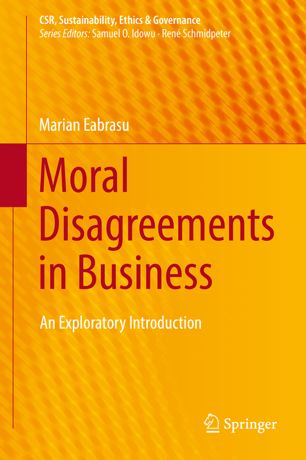

Most ebook files are in PDF format, so you can easily read them using various software such as Foxit Reader or directly on the Google Chrome browser.
Some ebook files are released by publishers in other formats such as .awz, .mobi, .epub, .fb2, etc. You may need to install specific software to read these formats on mobile/PC, such as Calibre.
Please read the tutorial at this link. https://ebooknice.com/page/post?id=faq
We offer FREE conversion to the popular formats you request; however, this may take some time. Therefore, right after payment, please email us, and we will try to provide the service as quickly as possible.
For some exceptional file formats or broken links (if any), please refrain from opening any disputes. Instead, email us first, and we will try to assist within a maximum of 6 hours.
EbookNice Team

Status:
Available5.0
30 reviewsThis book disassembles the moral assessment of business practices into its constituent parts to identify and clarify the four key concepts that form the basis of important moral disagreements in business: ‘personhood,’ ‘ownership,’ ‘harm,’ and ‘consent.’ ‘Moral bottom lines’ are those fundamental concepts in business ethics that ultimately account for our most resilient moral claims and unsurpassable convictions, and exploring them provides essential insights into the grounds on which we disagree in business ethics. This analysis is useful for students in business school looking to understand fundamental moral disagreements in business and for practitioners interested in connecting practice with their own moral intuitions. The book also challenges scholars of business ethics by arguing that we can reduce business ethics disagreements to these four issues.
"This is the most refreshing book on business ethics to appear in a long time. By focusing on 'personhood,' 'ownership,' 'harm,' and 'consent,' Eabrasu brings a new level of clarity and insight into disagreements on business ethic issues. Rather than reaching for an artificial utopian resolution, he embraces the challenge of explaining why we disagree. This is a must-read for serious business ethic scholars."Nicolas CapaldiLoyola University New OrleansLegendre-Soulé Distinguished Chair in Business Ethics